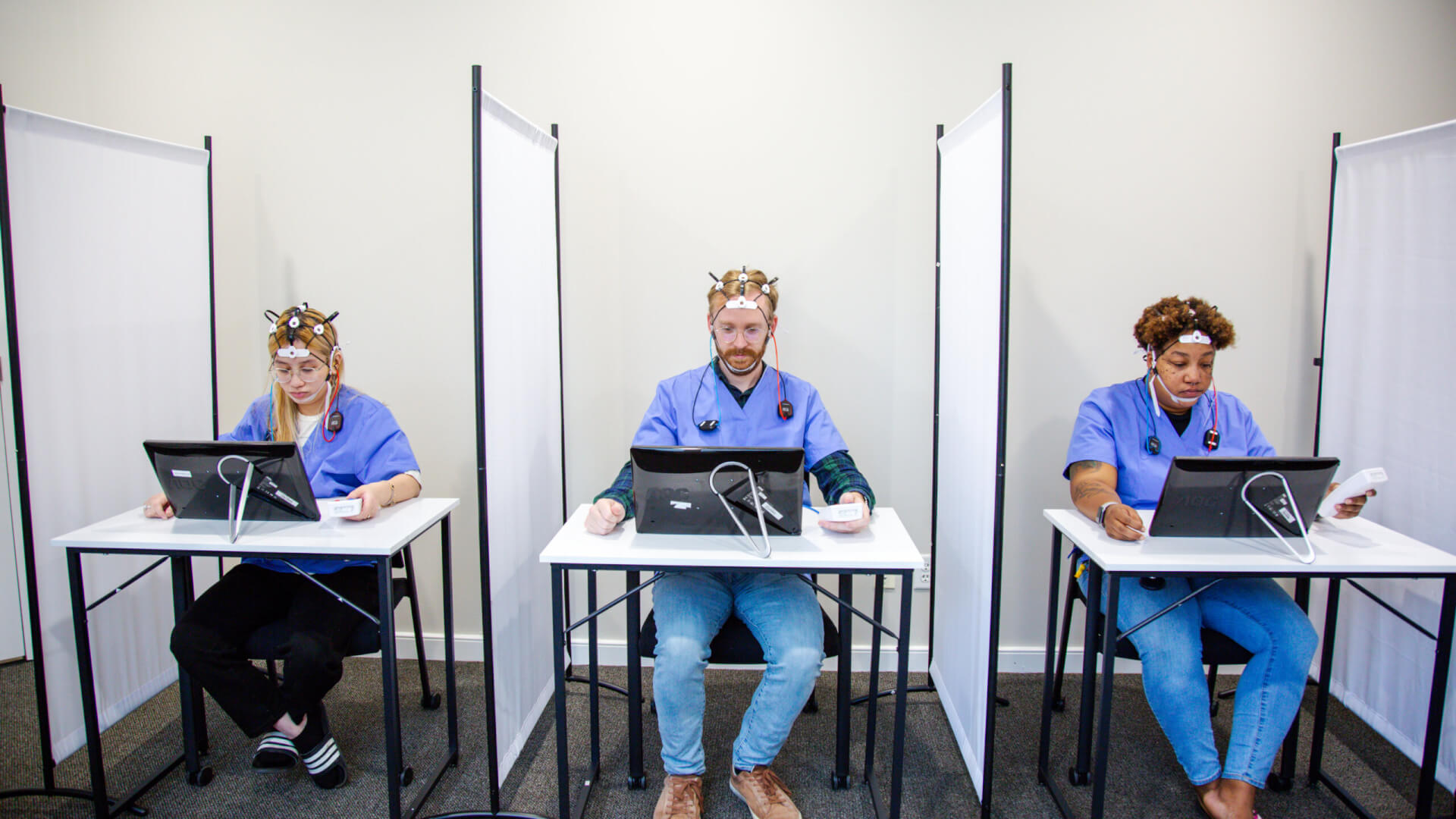Enables Advanced Neurological Research
Cognitive psychology and clinical neuroscience disciplines aim to understand how the brain processes information. While human cognition researchers have access to a broad range of technologies, the most direct way to measure many fundamental cognitive processes is by using COGNISION®. COGNISION® uses quantitative EEG (qEEG) and Event Related Potential (ERP) tests to record and analyze the brain’s electrical activity, both at rest and when responding to external stimuli.


